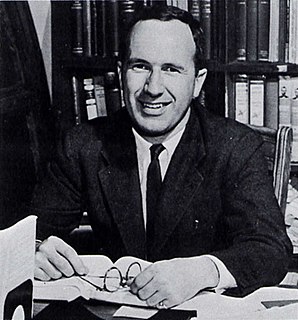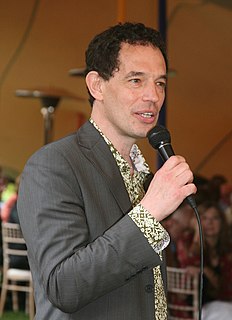A Quote by Ross Douthat
Liberalism has never done as well as it thinks at resolving its own crises.
Related Quotes
In a world torn by every kind of fundamentalism - religious, ethnic, nationalist and tribal - we must grant first place to economic fundamentalism, with its religious conviction that the market, left to its own devices, is capable of resolving all our problems. This faith has its own ayatollahs. Its church is neo-liberalism; its creed is profit; its prayers are for monopolies.
Today, if the CEO thinks it's a good idea, it's done everywhere; if the CEO thinks it's a bad idea, it's done nowhere. We ought to be more agnostic and open to learning things that we didn't expect - and the only way to do that is to try things and be open-minded about how well they are working. And third, evidence-based management involves reading and learning - just like doctors do - and to do so not just in school but afterward, as well.
Liberalism is unsustainable. When things go wrong in liberalism they pile more liberalism on top. Pretty good example of what's wrong with the US budget, US healthcare. Liberalism breaks it. Government breaks it. They pile more liberalism on top of it until it eventually implodes, like Obamacare is going to, or like Social Security is going to. All of these things, they're not sustainable, because liberalism isn't.
When there is pressure for leaders to respond to problems or crises, they often simply intensify their efforts in their particular defined sphere of activity - even if that's not relevant to the real problem. To do otherwise requires taking on entrenched practices and asserting power in areas where it often will not be well received. And leaders tend to see major crises more as threats to their own position rather than as systemic challenges for the societies that they govern or the institutions that they manage.
Unlike the rationalism of the French Revolution, true liberalism has no quarrel with religion, and I can only deplore the militant and essentially illiberal antireligionism which animated so much of nineteenth-century Continental liberalism. ... What distinguishes the liberal from the conservative here is that, however profound his own spiritual beliefs, he will never regard himself as entitled to impose them on others and that for him the spiritual and the temporal are different sphere which ought not to be confused.
Socialism needs to pull down wealth; liberalism seeks to raise up poverty. Socialism would destroy private interests, Liberalism would preserve [them] ... by reconciling them with public right. Socialism would kill enterprise; Liberalism would rescue enterprise from the trammels of privilege and preference. Socialism assails the preeminence of the individual; Liberalism seeks ... to build up a minimum standard for the mass. Socialism exalts the rule; Liberalism exalts the man. Socialism attacks capitalism; Liberalism attacks monopoly.


































